The Roman Empire has seen a long history with many ups and downs, and witnessed a large number of social, economic, and financial changes during its development. The Roman Republic survived for more than 500 years before the Roman Empire began when Augustus Caesar announced himself the first Roman emperor in 27 BC. It ended with the fall of Constantinople in 1453. The Roman Empire had a lasting impact on art, theatre, language, and religion all across Europe as it covered such a vast political and geographical area.
The empire was known for its autocratic rulers; many of them were megalomaniacs more concerned with their own power and wellbeing than that of their subjects. They were known for erecting statues of themselves rather than addressing national issues and misusing Rome’s financial resources for their own personal gain.
Below is a list of the 12 worst Roman emperors of all time:
1) Commodus
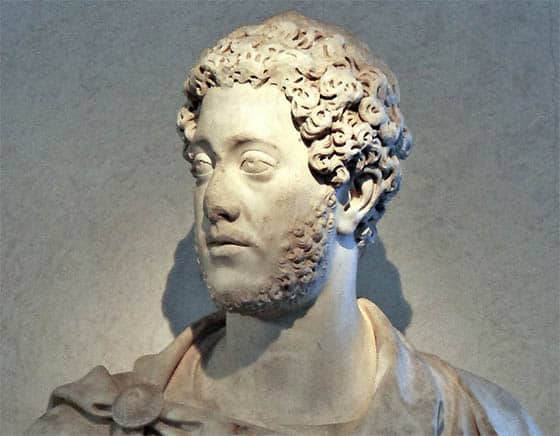
Commodus was born on 31 August 161 AD near Rome, and during the early years of his reign, he ruled jointly with his father, Marcus Aurelius. He was an arrogant, self-obsessed character who paid little attention to Rome’s political and military matters, preferring to hunt rather than manage matters of state.
He ruled for about 15 years starting in 177 AD, and during his rule he became increasingly ruthless and indifferent. He preyed on the powerless, war veterans, and animals. He was so self-obsessed that he renamed himself Hercules and proclaimed himself a living god. He wasted the nation’s resources on statues of himself all across the empire, leading to an economic crisis and depreciation of the Roman currency. The country saw civil war during his reign, and he was eventually strangled to death on 31 December 192 AD.
2) Nero
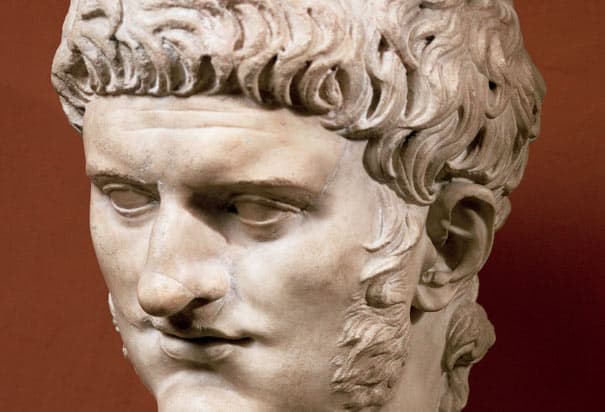
Nero was born in Italy on 15 December 37 AD and was named Lucius Domitius Ahenobarbus by his parents. He took the throne at the age of 16 in 54 AD. Nero wasted a great deal of money and other important resources, and many of the empire’s provinces were lost during his reign. He was one of the most disreputable Roman emperors, plotting his own mother’s murder, setting Rome on fire in order to rebuild the city, and killing both his first and second wives. His reign was marked by chaos and carnage, and his mismanagement of Rome’s finances led to increased taxation and the seizing of many national treasures.
3) Caligula
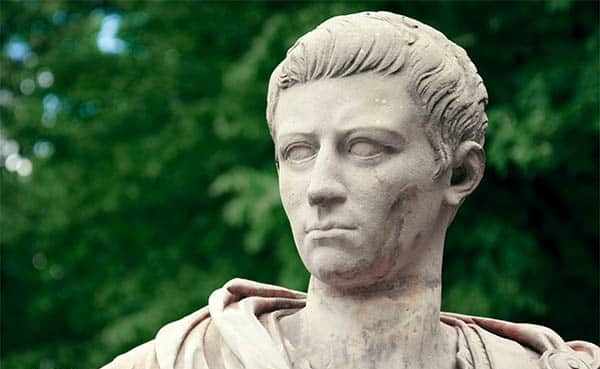
Caligula was of Germanic extraction and was named Gaius Caesar, after Julius Caesar. He was the third ruler of the Roman Empire. At first, Caligula was a generous and wise ruler, but soon he began to waste Rome’s precious resources and was increasingly known for his bloodlust and capacity for violence.
He was a sadist who derived pleasure from torturing people, including high-ranking senators. He also had improper relationships with his sisters and with the wives of his allies. He ordered random executions and killed many of his relatives. It is also thought that he was involved in the death of Emperor Tiberius.
4) Maximinus Thrax
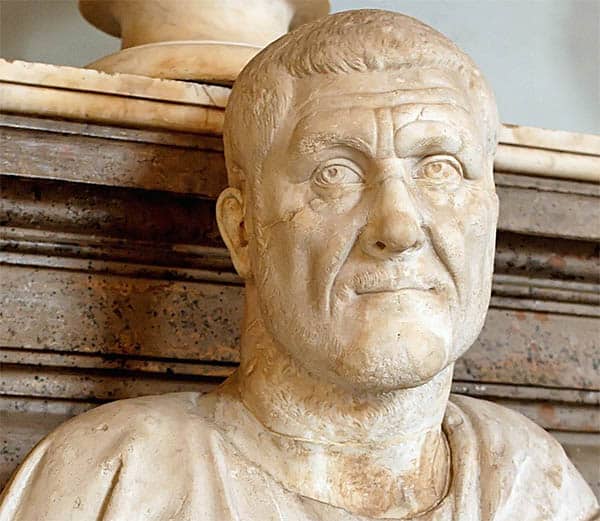
Maximinus Thrax only ruled for a short period from 235 AD to his death in 238 AD. He was the first soldier to become an emperor and was known for destroying public property and setting fire to villages wherever he went. He also killed many of his relatives, leading to social instability in Rome. His expansion into the German territories negatively affected the finances of the Roman Empire. He made reductions in subsidies on the city’s grain supply which further harmed his reputation with the people, especially the poor. The empire did not flourish under his rule, and civil war soon broke out.
5) Diocletian
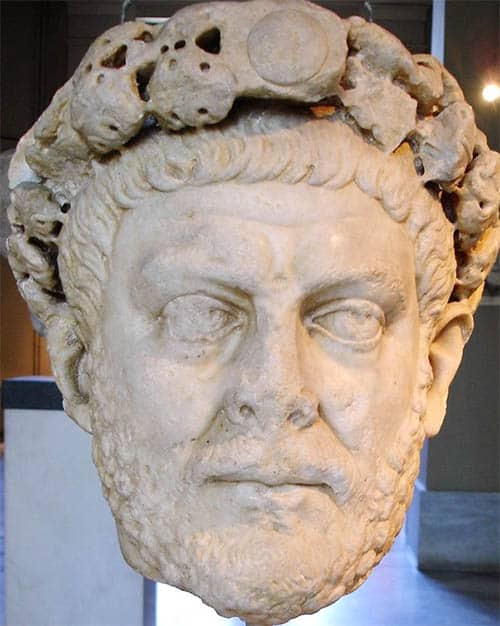
Diocletian was born in 244 AD as Diocles and died on 3 December 311 AD. Many of his plans were unsuccessful: his introduction of a maximum pricing system in an attempt to curb inflation was counterproductive and widely ignored.
His reign was brutal. He withdrew all rights of Christians unless they converted to his own pagan religion, and many were executed as a result. Churches were sabotaged; holy scriptures were publicly set ablaze; Christian evangelists were incarcerated, tortured, and sentenced to death. To Diocletian, Christianity represented a threat to Roman religious values which he simply could not tolerate.
6) Honorius
Honorius was born on 9 September 384 AD and died on 15 August 423 AD. His reign was chaotic and unsystematic. Honorius was greatly influenced by the popes of Rome whose influence increased during his lifetime.
Honorius was extravagant and jealous. He alienated his most loyal subjects due to his envy and even had Stilicho, one of Rome’s most skillful and adept generals, hung because of this. His political weakness and subbornness led to the rise in power of the Goths, who became a significant threat to the Roman Empire.
7) Elagabalus
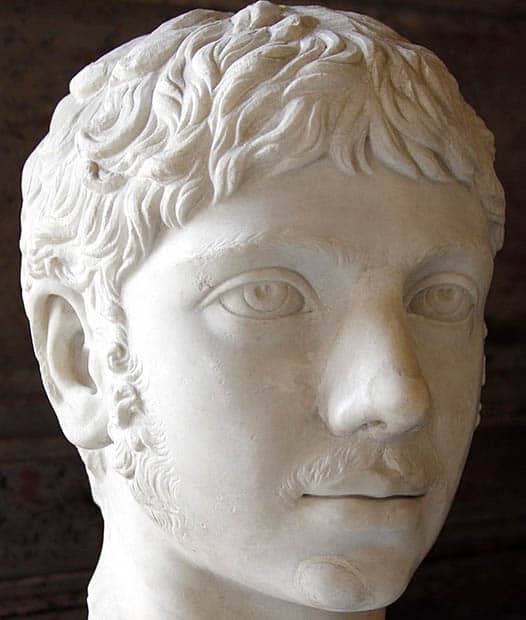
Elagabalus came to the throne in 218 AD and was assassinated in 222 AD. He was part of the Severan dynasty of Syria and was the second son to his parents.
During his reign, he turned his back on Roman traditions and taboos, had children tortured and sacrificed, and was famous for his sex scandals. He ruled for only four years, and his reign was marked with inefficiency, violence, and chaos.
8) Domitian
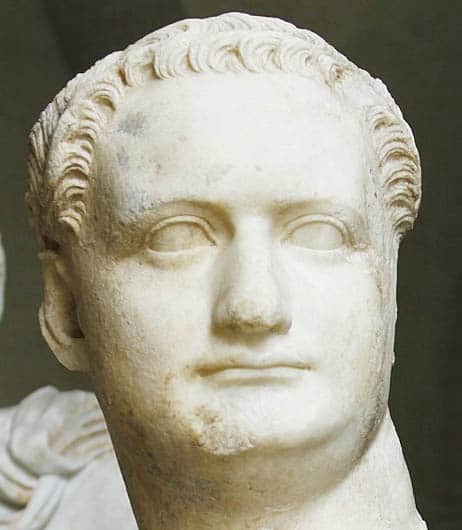
Domitian was born on 24 October 51 AD. He came to power on 4 September 81 AD, and his reign ended on the day of his assassination: 18 September 96 AD. He was the last of the Flavian dynasty.
Christians and Jews suffered under his reign as he insisted that all citizens follow his own pagan religion and worship the Roman gods. Rumor has it that he poisoned his brother and plotted to usurp him from power. He wasted many of Rome’s vital resources and spent the money on rebuilding his palace and on personal entertainment such as gymnastics, theater, and music. He nominated himself as public censor and was intolerant of those who has different morals to himself. He is generally thought to have been a cruel and paranoid ruler.
9) Septimius Severus
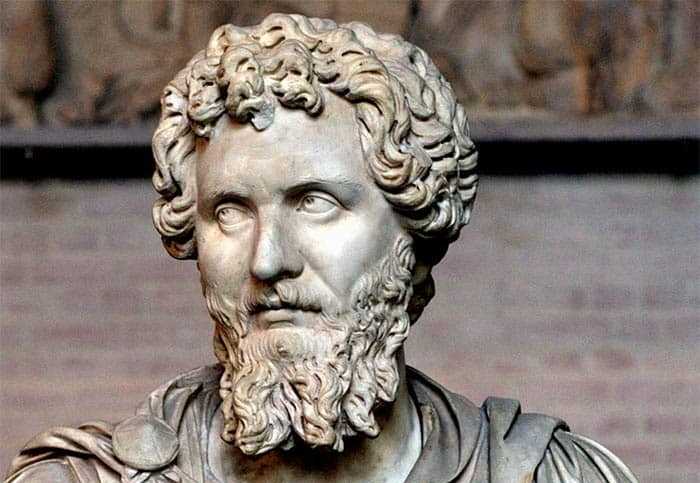
Septimius Severus was born on 11 April 145 AD in Libya. He killed the emperor Julianus and other rivals to gain power in 194 AD. Later that year, Severus led a campaign on the eastern border, taking the Kingdom of Osroene as a new state. He then beat another rival for the throne, Albinus, a few years later.
During his reign, he persecuted anyone whose religion differed from the traditional Roman one, in particularly Christians and Jews. He enforced a draconian interpretation of Roman law which would not allow any other religion to be practiced. Despite his brutal regime, he was unable to subdue the people and soon lost power as a consequence of his actions.
10) Caracalla
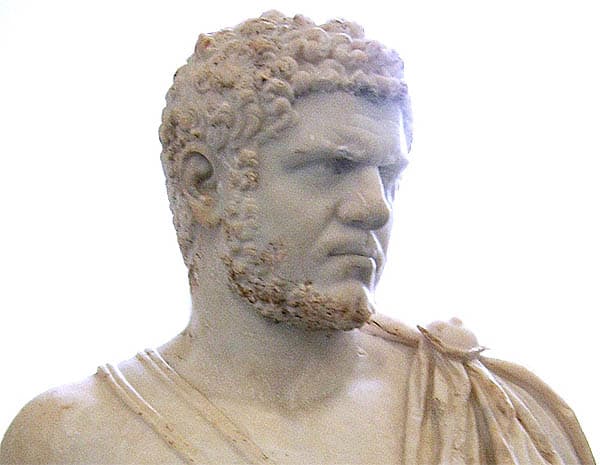
Caracalla was born in France on 4 April 188 AD, the son of Septimius Severus, and ruled from 211 AD to 217 AD jointly with his younger brother Geta. After their father’s death, the siblings disagreed on many issues related to their joint inheritance. Caracalla had his brother’s supporters executed, and Geta’s effigies and paintings were vandalized, burnt, or destroyed. He made it an offense to even speak Geta’s name in public. The inhabitants of Alexandria had no respect for Caracalla and his ideas, and they openly mocked him in public.
His reign is famous for the Edict of Caracalla which declared that all free men and women in the Roman Empire were to be given Roman citizenship and equal rights like the native Romans. He also diverted huge amounts of public money to the military and increased soldiers’ pay to win their support. Despite this, Caracalla remained unpopular due to his vengeful and sadist nature. He initiated a series of brutal attacks on the Parthians in the east and destroyed all public images of the emperors who had preceded him. He eventually assassinated his brother and led Rome into civil war. In the end, he was assasinated himself by a solider called Justin Martialis
.
11) Tiberius
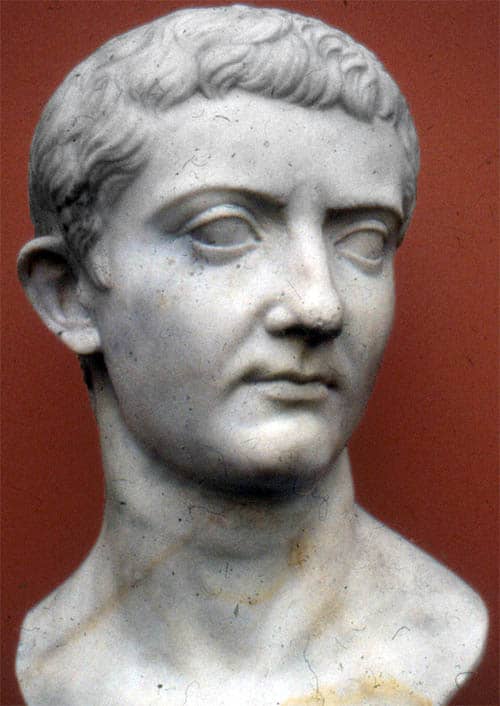
Tiberius was born on 16 November 42 BC, and he ruled for 22 years from 18 September 14 AD to 16 March 37 AD.
He was the second Roman emperor and was an autocratic ruler. Despite a promising start, when he appeared to be wise and decisive, his true character soon became apparent. He inflicted terror and repression on the people of Rome and ordered his main rival, Postumus, to be sentenced to death.
His unpleasant demeanor and lavish lifestyle soon earned him many enemies. He urged his subjects in Rome to worship his statues while he spent most of his time living an extravagant lifestyle on an island away from the capital. His palaces were filled with inappropriate images and paintings, he abused young children, and he tortured anyone who didn’t agree with him. He did not assume the responsibilities of an emperor and rarely visited his native land. His brutality was particularly apparent towards the end of his reign.
12) Phocas
Born in southeast Europe, Phocas was an inept and irresponsible emperor, and was considered to be one of the worst emperors of the Eastern Roman Empire. Rome lost a civil war with Persia during his reign which resulted in huge losses for the Roman economy and wasted crucial national resources.
After a rebellion against the Emperor Maurice, who was an extraordinarily talented and efficient Roman ruler, Phocas was sent to Constantinople as a representative. He declared himself a Byzantine emperor, but he was an inefficient leader who was neither good at controlling the state nor in administering the army. He practiced nepotism widely and put his friends and family in prominent positions of power. He died in 610 AD, having caused significant damage to the Roman Empire during his reign.
Conclusion
These Roman emperors are examples of the worst leaders the Roman Empire ever saw. Many of them did not display these despicable traits when they first took to the throne; they became apparent over time and as their reigns progressed. All of them were renowned for their inefficiency, poor administration, and bad decisionmaking. Many civil wars broke out during their reigns as Roman emperors were responsible for the administrative and financial stability of the nation. Under their rule, the empire witnessed bloodshed, violence, and intolerance of various religions and communities.
However, despite their failings, these emperors certainly contributed in many ways, not least as an example of what not to do. Their poor decisionmaking acted as a set of guidelines for how not to rule, and this learning process allowed the Roman Empire to develop and expand, leaving behind an unforgettable legacy.